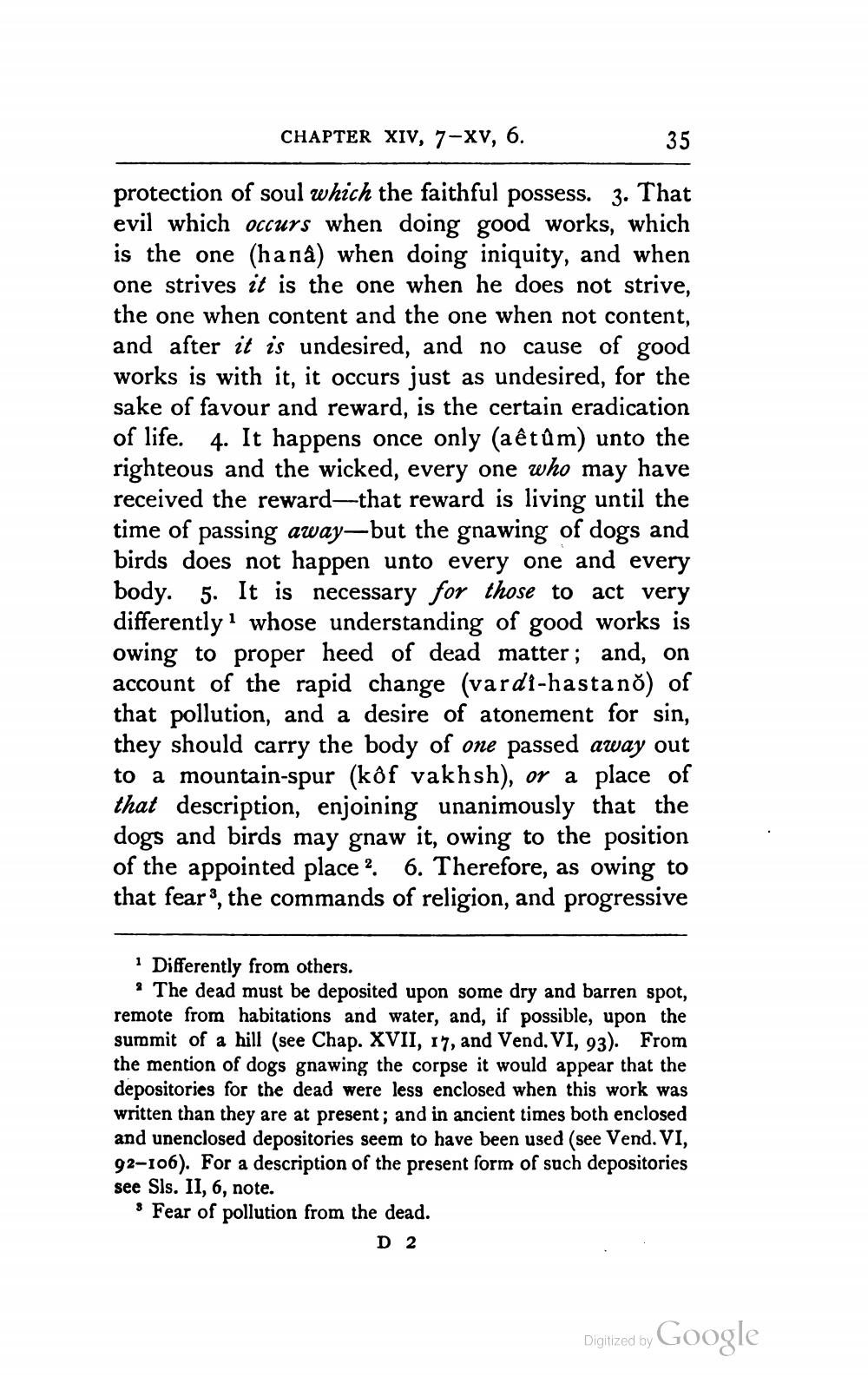________________
CHAPTER XIV, 7-xv, 6.
35
protection of soul which the faithful possess. 3. That evil which occurs when doing good works, which is the one (hanâ) when doing iniquity, and when one strives it is the one when he does not strive, the one when content and the one when not content, and after it is undesired, and no cause of good works is with it, it occurs just as undesired, for the sake of favour and reward, is the certain eradication of life. 4. It happens once only (aêtûm) unto the righteous and the wicked, every one who may have received the reward-that reward is living until the time of passing away—but the gnawing of dogs and birds does not happen unto every one and every body. 5. It is necessary for those to act very differently1 whose understanding of good works is owing to proper heed of dead matter; and, on account of the rapid change (vardi-hastano) of that pollution, and a desire of atonement for sin, they should carry the body of one passed away out to a mountain-spur (kôf vakhsh), or a place of that description, enjoining unanimously that the dogs and birds may gnaw it, owing to the position of the appointed place 2. 6. Therefore, as owing to that fear3, the commands of religion, and progressive
1 Differently from others.
2 The dead must be deposited upon some dry and barren spot, remote from habitations and water, and, if possible, upon the summit of a hill (see Chap. XVII, 17, and Vend. VI, 93). From the mention of dogs gnawing the corpse it would appear that the depositories for the dead were less enclosed when this work was written than they are at present; and in ancient times both enclosed and unenclosed depositories seem to have been used (see Vend. VI, 92-106). For a description of the present form of such depositories see Sls. II, 6, note.
3 Fear of pollution from the dead.
D 2
Digitized by
Google




